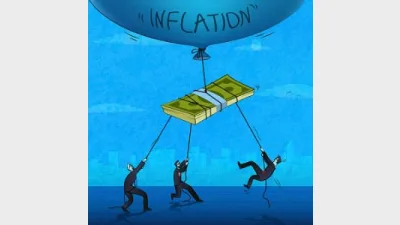Australia ‘unlikely’ to see recession: Maple-Brown Abbott



Interest rate cycles do not guarantee the doom and gloom of current economic forecasts, according to a boutique fund manager, and markets could see outperformance.
Dougal Maple-Brown, head of Australian value equities at Maple-Brown Abbott, challenged the growing expectation that the nation would enter a recession in 2023.
Current interest rates presented similarities to the economic conditions of 1994, where interest rates grew by 2.75% over a five-month span.
“The economy didn't go backwards in 1994. Markets admittedly did. But the rate cycle is not unprecedented, and it doesn't guarantee a recession.
“The fall in global equity markets so far has largely been caused by a price-to-earnings (P/E) de-rating. Effectively, interest rates have gone up, market multiples have come down but earnings have not moved very much at all in most markets,” he commented.
In relation to the Reserve Bank of Australia (RBA) tightening monetary policy, Maple-Brown said: “Everyone keeps saying it's unprecedented, but it's actually not.”
Reflecting on Australia’s economic history could be beneficial when knowing what to expect during a bear market, he identified.
Maple-Brown added that market P/E averages were often deceiving and obscured wide dispersion between sectors.
The Australian market was trading at a forward price-to-earnings ratio of approximately 13-14 times, about 10% below the long-term average.
Furthermore, separating the higher-performing sectors from those trading on lower multiples provided a more accurate depiction of the investor climate.
“Market conditions should continue to support value managers who can seek out the best performers in the right sectors. We are optimistic there is further outperformance to come,” Maple-Brown said.
Recommended for you
Natixis Investment Managers has hired a distribution director to specifically focus on the firm’s work with research firms and consultants.
The use of total portfolio approaches by asset allocators is putting pressure on fund managers with outperformance being “no longer sufficient” when it comes to fund development.
With evergreen funds being used by financial advisers for their liquidity benefits, Harbourvest is forecasting they are set to grow by around 20 per cent a year to surpass US$1 trillion by 2029.
Total monthly ETF inflows declined by 28 per cent from highs in November with Vanguard’s $21bn Australian Shares ETF faring worst in outflows.











